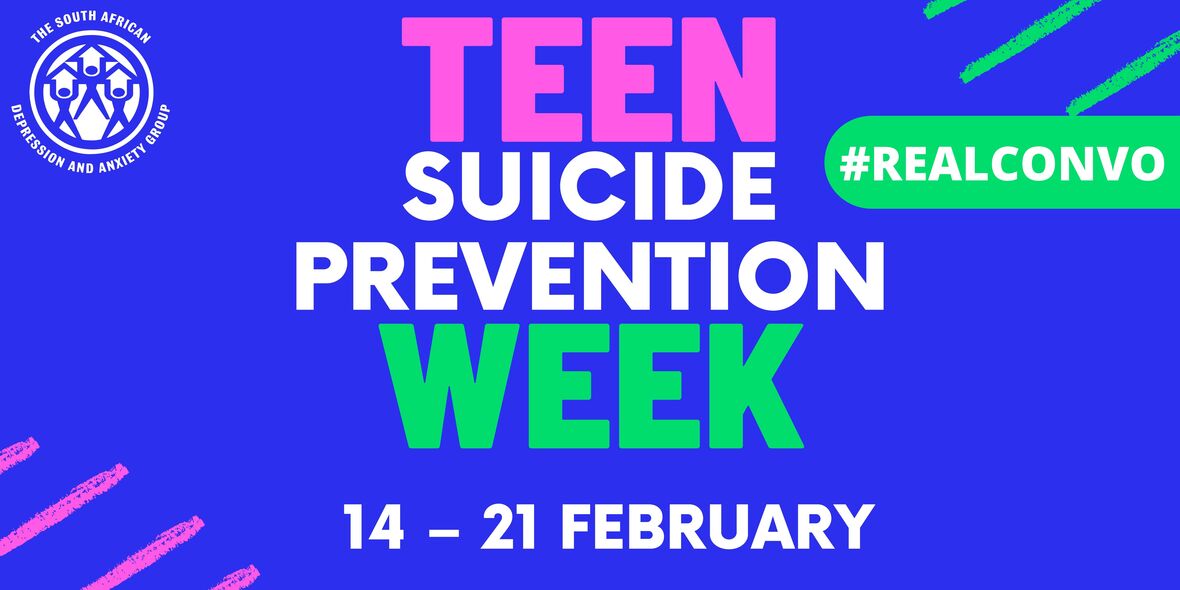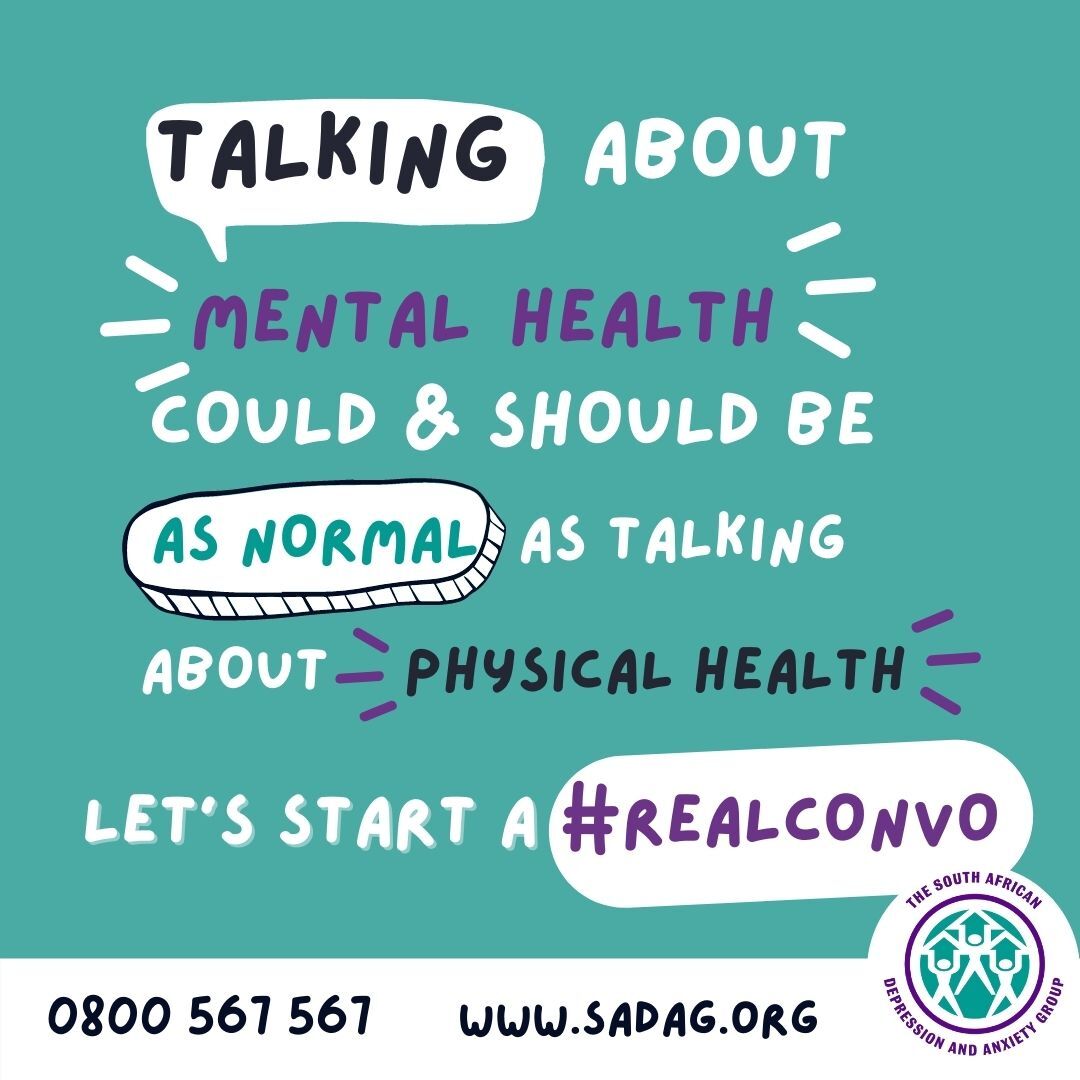Talking about Teen Suicide Saves Lives #RealConvo
Teen Suicide Prevention Week 14 – 21 February
This year, for Teen Suicide Prevention Week (14 – 21 February 2022), The South African Depression and Anxiety Group is helping parents, teachers and the community on how to share difficult conversations around Teen Depression and Suicide Prevention.
According to experts, teens are the most at-risk age group for Suicide in South Africa. The most at-risk age group for suicide in South Africa are adolescents, and recently we are hearing more and more of teen suicides in the press all around the country. The need to talk more about Teen Suicide is important to help parents, teachers and our communities to identify the risk in our teens early, empower them to have real conversations about issues that teens are dealing with, and getting the urgent help they need. Talking about Teen Suicide saves lives. One teen suicide is one too many.
“Parents are often afraid to use the “S” word when having critical conversations with their teens. We need to strive to create safe and open spaces for our teens so that when they are truly in the throes of a crisis, we are their go-to,” says Clinical Psychologist, Liane Lurie.
Talking about Suicide, especially Teen Suicide, is often taboo, too hard, difficult and awkward. The fear of saying the wrong thing, or “planting the seed” is often what parents and teachers tell SADAG. SADAG wants to help parents and teachers on how to have #RealConvo’s with their teen or learners. Being available to talk about mental health is an important way we can all be there for the people in our lives – whether it’s a child, friend, family member, colleague or even someone in the community. Our willingness to be open, honest and present with the people we care about, and talking about Teen Depression and Suicide, could literally save a life.
Throughout the week, SADAG will be launching an online campaign called #RealConvo’s sharing important conversation starters, helpful tips on what to say and what not to say, sharing expert videos, and resources on how to talk about Teen Suicide Prevention. You don’t need special training to have an open, authentic genuine conversation about mental health. Often, just talking about it can be the first important step in staying connected.
Look on the front page of our website on Sunday 13th for our upcoming online resources, webinars and more:
|
|
|
|
“Let us speak about Teen Suicide Prevention today, so that we may never have too again in the future,” says Clinical Psychologist and SADAG Board Deputy Chairperson, Zamo Mbele. “Teens need to know that help is available and asking for help is something you do at any point when you are battling. It’s difficult asking for help but all you need to say to an adult who cares, is, I need help. We will listen." says Psychiatrist Dr Terri Henderson. If someone you know, your teen, or friend are feeling hopeless, alone or having recurring thoughts of Suicide or death, contact SADAG’s toll-free Suicide Helpline 0800 567 567 or 0800 21 22 23 providing free telephonic counselling, crisis intervention, information and referrals 7 days a week. Or SMS 31393 and a counsellor will call back or visit www.sadag.org. “Take every Suicide mention, threat & attempt seriously. People who have attempted Suicide before, if left untreated and unmanaged, are at greater risk of attempting or completing a Suicide,” says SADAG’s Director Cassey Chambers.
|




























